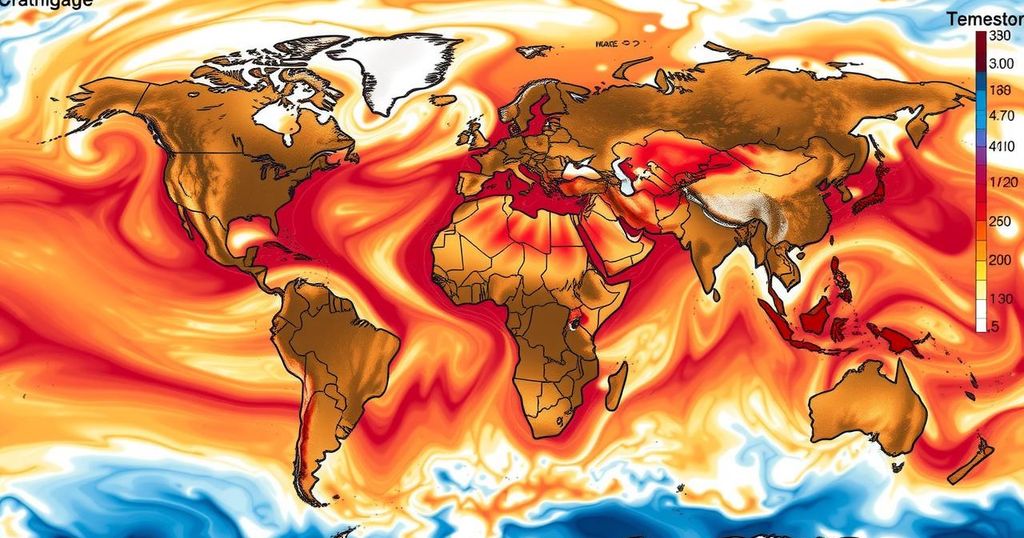The World Meteorological Organization declared 2024 is likely to be the warmest year on record, following a decade of extreme heat driven by human activities. Significant fatal impacts from climate-related disasters have been observed, alongside a call for countries to urgently reduce emissions and enhance preparedness against climate extremes. Monitoring efforts for greenhouse gas emissions and the establishment of early warning systems are also being emphasized.
The World Meteorological Organization (WMO) has announced that 2024 is expected to be the hottest year on record, marking a decade characterized by unprecedented heat attributable to human actions. WMO Secretary-General Celeste Saulo emphasized the devastating impacts of extreme weather events this year, including flooding, cyclones, and record-high temperatures, which have caused significant loss of life and displacement. Reports indicate that climate change-related disasters resulted in the deaths of at least 3,700 individuals this year alone, with estimates suggesting that the total fatalities could be in the hundreds of thousands.
Furthermore, climate change has lengthened the duration of dangerous heat exposure, particularly affecting small island nations and developing countries that lack the resources to effectively respond. UN Secretary-General António Guterres highlighted the alarming pattern of rising temperatures, referencing that the past decade has featured the top ten hottest years on record, including 2024. He stressed the urgent need for countries to drastically reduce emissions and support a transition to renewable energy.
The WMO also warned that current global warming levels are nearing 1.3°C, with forecasts indicating that the 1.5°C threshold established in the Paris Agreement may be surpassed temporarily in the next five years. Despite a recent UN climate conference in Baku failing to establish new emission targets, ongoing efforts are being made to monitor greenhouse gas concentrations to better assess and respond to climate change. The organization is advocating for enhanced early warning systems and improved data collection to bolster resilience against extreme weather events, particularly in vulnerable regions.
In conclusion, the WMO’s statements underscore the urgent and multifaceted challenges posed by climate change, with the increasing frequency and intensity of extreme weather events threatening lives and livelihoods worldwide. Without significant action to curb emissions and enhance climate preparedness, the trajectory of climate-related disasters is set to worsen in the coming years.
The ongoing climate crisis has become a critical challenge, with increasing temperatures leading to devastating environmental and humanitarian impacts globally. The World Meteorological Organization has recognized 2024 as a pivotal year in this context, marking a continuation of alarming trends in extreme weather events linked to climate change. Reports indicate that human activity is at the forefront of these climatic changes, necessitating urgent and effective responses from all countries to mitigate future risks and promote overall environmental health.
The predictions for 2024 highlight an urgent need for global action against climate change, as temperatures soar and extreme weather events escalate in frequency and severity. The WMO has provided decisive data indicating the breadth of the crisis, while calls from UN leaders emphasize the immediate need for stronger commitment to emission reductions and climate resilience measures. Without prompt and substantial efforts, the world may face an even graver climate breakdown in the years to come.
Original Source: healthpolicy-watch.news






